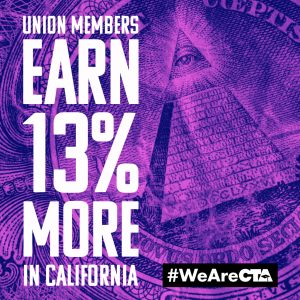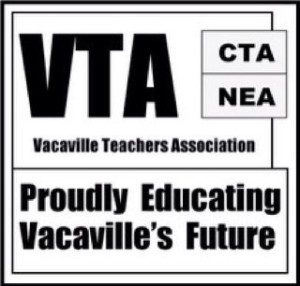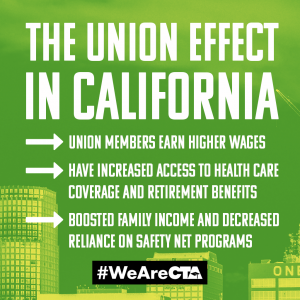AB 709 would require disclosure of finances, compliance with open meeting and conflict-of-interest laws
By Richard Bammer, The Reporter, Vacaville
Thursday, September 1, 2016
Lack of accountability and transparency at California charter schools is hurting students, a group of state officials, educators, civil rights leaders said Thursday, noting that a new law awaits Gov. Jerry Brown’s signature that will require all charter schools to be open to greater public scrutiny.
In a national media teleconference, Assemblyman Mike Gipson, D-Carson, the author of Assembly Bill 709, said some of the state’s 1,200 charter schools fail to make financial and administrative records open to the public, in violation of the law.
“They cannot be excused from accountability,” he said.
The bill would increase transparency and accountability to parents and to disclose how the schools spend taxpayer money, including budgets and contracts. Additionally, it prohibits charter school board members and their families from profiting from their schools, and requires charter schools to comply with California’s open meetings, open records and conflict-of-interest laws.
Gipson’s bill comes on the heels of recent news headlines and academic studies that have documented waste, fraud and abuse by privately managed charter schools, costing taxpayers millions while delivering questionable services and graduating students who mostly cannot qualify for state university and University of California schools.
In early July, state Attorney General Kamala Harris reached a $168.5 million settlement with K12 Inc., a Virginia-based, for-profit online charter operator, and its affiliate California Virtual Schools, a collective of nonprofit online charter schools serving 13,000 California students.
“Although charter schools are privately run entities, they cannot be excused from the accountability that is required from those responsible for educating our children,” Gipson said in a press release prepared by the California Teachers Association and sent to journalists after the teleconference. “That is why AB 709 is so crucial. Families deserve to know how their schools are being run, and our state deserves an education system that is free from unfair advantages and double standards.”
A spokesperson for the California Charter Schools Association, which has offices in Los Angeles, Sacramento and Oakland, could not be reached for comment at press time early Thursday evening.
Vacaville Unified oversees four “dependent” charter schools — the ACE Program, Fairmont Elementary, Buckingham Charter Magnet High, and the Ernest Kimme Charter Academy for Independent Learners — meaning they are governed by district administrators and the board of trustees. Kairos Public School Vacaville Academy, at the old Elm Elementary campus, is an “independent” charter, and, while aligned with VUSD, is governed by its own board, an executive director, and largely overseen by the state of California.
Heritage Peak Charter School, on Parker Street, is also an independent charter but aligned with a Sacramento-area school district. The Dixon Montessori Charter School, on North Almond Street in Dixon, is also an independent charter, aligned with Dixon Unified, with its own governing board, executive director and also largely overseen by the state of California.
Gipson’s underlying sentiments were shared by the teleconference speakers, a group that included, besides Gipson, California State Treasurer John Chiang, Los Angeles Unified School District School Board Vice President George McKenna, Anaheim Union High School District Superintendent Mike Matsuda, Victor Leung of the American Civil Liberties Union, and Aimee Roylance, a Livermore parent who recently withdrew her children from the Livermore Valley Charter School, which is the subject of an investigation by the Alameda County District Attorney’s Office for financial fraud and potential criminal charges.
State Superintendent of Public Instruction Tom Torlakson called it “the most serious set of allegations against a charter that I’ve ever seen.”
Nearly all the teleconference speakers said they were both supporters and critics of charter schools and praised the initial intent of the state’s 1992 charter school law, with its promise to increase greater flexibility in educational approaches.
“One of my hallmarks in my public service has been to promote and support accountability and transparency,” Chiang said in the written statement about Gipson’s bill, adding, “I think it’s a very important first step toward achieving a level of transparency that California families expect from their schools.”
In her remarks, Carol Kocivar, of the California State Parent Teachers Association, asserted that some charters have denied students enrollment based on their race, ethnicity, lack of fluency in English, and parents’ socio-economic status.
She also took charter schools to task for, in some cases, requiring a mandatory amount of parent volunteer hours, which are not required at traditional public schools, and have proven to be a difficult requirement to fulfill for households with two full-time working parents.
“All children should have an equal opportunity to attend a charter school,” Kocivar said in the written statement. “All means all. That means a child whose parents work two full-time jobs. That means a child in foster care. That means a child whose parents may have a disability. No child should be discriminated against because of a requirement that requires mandatory volunteer hours as a criterion for admission or continued enrollment. Shame on any school that creates that kind of barrier to a child who wants to attend.”
In the press release, Mike Myslinksi, a spokesman for the politically powerful 325,000-member CTA, wrote that state regulators have found more than $81 million in fraudulent and wasteful spending at charter schools in California, while another report shows that an expansion of privately run charter schools would cost the Los Angeles Unified School District more than $500 million this year alone.
Additionally, an ACLU report, “Unequal Access,” found that more than 20 percent of California’s charter schools deny access to students with disabilities, English learners, or students who have lower grades and test scores. The NAACP recently called for a ban on privately managed charters.
Research by In the Public Interest, Myslinksi noted, shows Californians “overwhelmingly favor” proposals to reform charter schools — proposals that include strengthening charter school accountability and transparency, improving teacher training and qualifications, preventing fraud, returning money to taxpayers when charter schools close, and ensuring that neighborhood public schools are not adversely affected.




